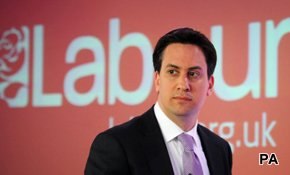Today's daily polling for the Sun shows the Conservatives on 38%, Labour on 40% and the Liberal Democrats on 10%. Several of our daily polls since the local, Scottish and Welsh elections on the 5th May have shown the Labour lead dropping to as little as two points – previously you had to go all the way back to January to find such a close race in our daily polling. Whereas Labour's average lead in the polls was 6 points through April, since the elections it has fallen to just 3.5 points.
Part of the reason for this will probably be the 'halo effect' of the elections, which rightly or wrongly were seen as a success for the Conservatives and somewhat disappointing for Labour. However, there also seems to be an economic factor at play - earlier this year when figures showed the economy going back into negative growth our regular economic trackers slumped. The 'feel good factor' (the percentage of people thinking their financial situation will get better minus those who think it will get worse) dropped to -56, the lowest it had been since the banking crisis first hit. The percentage thinking the economy was in a bad state hit 80%. At the same time Labour's lead over the Conservatives climbed, in a few instances getting into double figures.
Since then economic confidence has started to recover slightly. The proportion of people thinking the economy is in a bad state has dropped to 74%, and the 'feel good factor' has clawed its way back to -46. By historical standards these are still extremely bad figures... but not quite as bad as a month or two ago. The Government avoided a double-dip recession in the latest economic figures, and their position in the polls has recovered slightly.
Will this trend last? Any halo effect from the local elections is, almost by definition, a short term factor, and while economic confidence has risen slightly, it remains dire. The Government's plans still involve unpopular cuts and years of tight spending restraint. Their mid-term blues are more likely to have been delayed than cancelled.
See the latest survey results and full details here
See our political trackers, including voting intention, here









